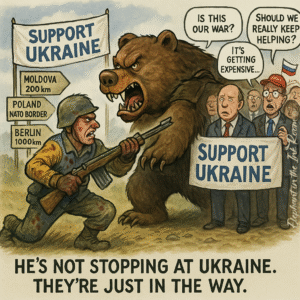Should we support Ukraine?
On
- Commentary

/
RSS Feed
The real issue is this:
Should the world tolerate Putin’s violent, revisionist imperialism?
When framed that way, Ukraine is not just a recipient of aid. It’s the front line of a much larger confrontation—between authoritarian conquest and international law, between aggression and accountability.



Comments are Disabled